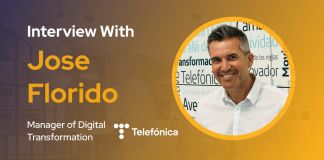- 1. Hi Akos, tell us about yourself and your background?
I came to the CX community by an unusual route. I was an officer in the fire and rescue service and we wanted to understand why people were not following our advice or doing as we expected when we attended fires. As a result, I instigated and led a pioneering research study that challenged many of our assumptions and changed our understanding of human behaviour and motivation.
One of the main insights from our research was the need to create a new relationship with the public, and this led me to the CX sector for inspiration of how we could do that. I was immediately taken with the subject as well as the passion and energy of those within the sector. I developed my knowledge, and this led to me becoming the first CX manager in the fire and rescue service.
I left the fire service in 2019, and since then, I have divided my time between setting up my CX consultancy and several international humanitarian/emergency roles. The common factor for both is my focus on the human experience and I find so much that transfers between these different sectors.
- What is the biggest misunderstanding about customer experience, in your opinion?
I think there is a blind spot in CX, caused by not appreciating that customers are humans first. Focussing on the relationship between customer and the company, tends to exclude recognition of all the other factors that strongly influence their behaviour, needs and experience on a day-to-day basis.
This has significant repercussions for brands and customers, and it is the focus of the research I am undertaking for a book on the subject.
- What are some of the newer CX companies/solutions you’re keeping your eyes on right now?
I am interested in the technologies that are developing the ability to ‘read’ qualitative text (written or audio) and generate insights from it. This offers the potential to make the process of collecting verbatim easier and quicker. I am looking forward to seeing what type of insights the technology generate as it matures – and whether it differs from the results of a human assessment of the text.
I hope this technology will help make organisations more comfortable with unstructured data and enable them to integrate it with other sources, creating a more insightful understanding of customers.
- What can companies do to improve customer loyalty and retention?
I see retention and loyalty as two quite different options, albeit with a similar purpose. For me, loyalty aims to secure a long-term relationship based on a sense of connection. This is difficult to achieve and probably only the right strategy for certain brands.
I prefer retention which I consider to be a shorter term and more transactional approach in which each contact aims to ensure the customer considers the brand as the default choice for their next purchase. There is no one size fits all model but the likelihood of retaining customers is improved by being relentlessly good at what you do, based on knowing what your customers value, ensuring that every interaction enhances the likelihood they return.
- What do you think is most relevant and why: CSAT (customer satisfaction score), NPS (net promoter score), or CES (customer effort score)?
Of the three, I prefer the Customer Effort Score but I think they all have limitations. I am interested in the ‘why?’ of customers and I would use other approaches for that. However, CES is interesting as you can intentionally adjust the effort related to different tasks and see how customers respond. Whilst low effort is usually beneficial, the ability to increase the effort required by the customer at certain points of the journey can also be used positively. - How can companies better use social media in the era of customer-centricity and personalization?
This is not one of my specialist areas, and I am not a regular user of social media so I can only respond in broad terms. But I think authenticity, tone of voice and managing the inevitable errors will remain important.
Social media clearly continues to offer a valuable, and arguably essential, means of engagement for customers. But it needs to be regularly reviewed to ensure its operational use aligns with, and contributes to, the brand strategy.
- What is your opinion on AI-based chatbots to handle customer support?
An interesting area. As with all technology solutions, it will work where it provides benefits to both the organisation and its customers. There are certainly many really interesting and exciting ways in which the technology can be deployed.
However, it can also be a bit of a red flag, if it is being introduced to deal with increasing volumes of customer contact. In that case, some root cause analysis to identify and fix the underlying issue may be a better long-term solution.
As with all technology, I see this as a step along the way. Increasingly we will see connected devices that interact with each other as much, if not more so, than with humans. Imagining ‘where next?’ and using scenario planning are increasingly important to create longer term capability and value when making investments.
- What was the best movie you saw that has come out during this past year?
The Trial of the Chicago 7. I enjoy court room dramas as the way the same evidence is presented by opposing sides always fascinates me. Even a’ fact’ can be viewed very differently and this reminds me of the value of seeking different perspectives. As a historical drama, it is also interesting to see how much has, or has not changed in the meantime. I like films that both entertain and make you think. We need more of these. - Last but not least, what is your favorite CX metric?
As an advocate of qualitative approaches, I favour looking at the ways in which an organisation listens to its customers and how that is translated to actionable insights or compelling stories.






